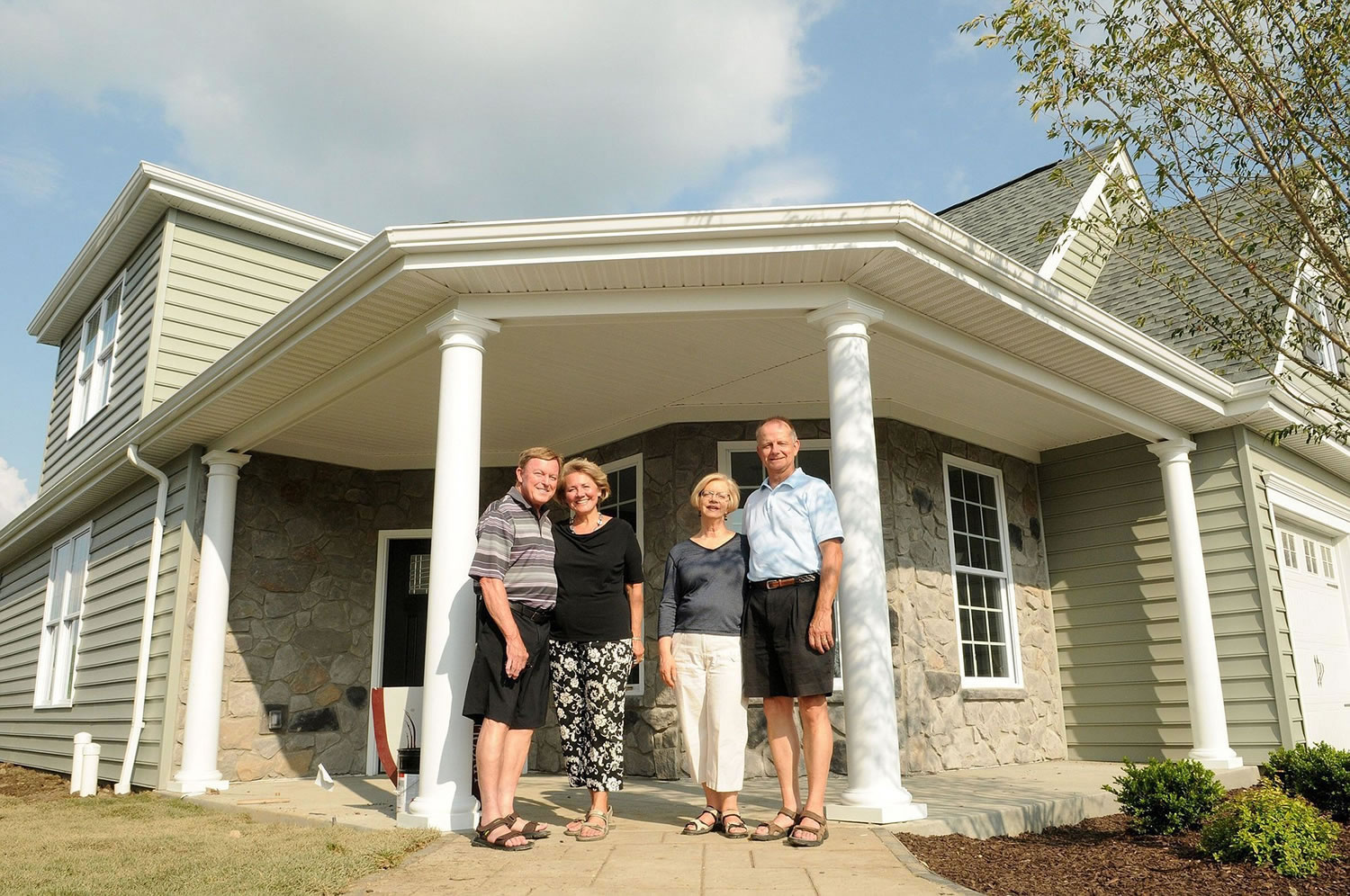Retired high school teachers John and Judy Woffington are trading their home on a three-acre lot in Marshall, Pa., near Pittsburgh, for one that sits on about a third of an acre — not because they don’t like the house they’ve owned for 34 years, but because the whole idea of mowing the lawn and shoveling snow has become too much.
Their new home is under construction in a development in Ohio Township called Sewickley Ridge, a single-family housing community catering to residents who are at least 55 years old and seek a lifestyle free of the hassles commonly associated with homeownership, such as lawn maintenance.
“We don’t want to leave Pittsburgh, but we like to see other parts of the world and this lifestyle is the best of both worlds,” Woffington said.
Sewickley Ridge is being developed by Philadelphia-based Traditions of America, a company that has been building 55-and-older communities for 20 years on the East Coast. Seven years ago, the company introduced the concept to the Pittsburgh region with a 71-acre age-restricted community in Freedom, Pa., called Liberty Hills.
While home sales in Liberty Hills were encouraging, the newest age-restricted community in this region has been wildly successful.
“We are up to 86 sales to date in the Ohio Township development. That’s a record for us,” said Nathan Jameson, one of the company’s three owners. “We’ve never had so many sales in a community prior to opening the model homes. What that tells us is that demand for these style communities and our specific concept is really just beginning.”
Jameson said about 70 percent of the buyers in both age-restricted communities come from the Pittsburgh region. The other 30 percent are people from all over the country — places such as Wisconsin, California, Tennessee, North Carolina and Virginia. Often, they move because they are originally from Pittsburgh. Others came because their children or grandchildren now live in Pittsburgh.
HOAs spreading north
Age-restricted or deed-restricted communities are a form of homeownership that has been popular for several decades in Sunbelt states such as Florida, Arizona and California. Deed-restricted communities use governing documents created by the developers to outline what is and is not permitted. By purchasing a home there, all buyers — current and future — agree to abide by the governing documents.
Deed-restricted communities can restrict an owner’s ability to paint, renovate or alter the appearance of the home. They can also limit the number of vehicles on site by requiring all cars be parked inside the garage.
The rules are contractual agreements. Residents who break the rules can be punished by the homeowners association, which has the power to impose fines, place liens against homes for non-payment of fees and fines, and potentially confiscate homes through court action.
The Foundation for Community Association Research, based in Falls Church, Va., reports 65 million Americans are now living in almost 330,000 U.S. condominiums and homeowners associations, compared to 51.8 million people living in 260,000 condos and homeowners associations in 2004.
Frank Rathbun, a spokesman for the foundation, said one reason many Northern cities were late to the trend of homeowner association-run communities is that the growth of such communities started in the 1970s and 1980s in states that were gaining population at that time such as Florida and California. Northern communities such as Pittsburgh were losing population, and there was not as much new home growth.
Other rules are intended to establish community standards and maintain property values.



